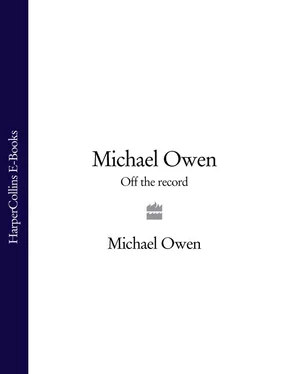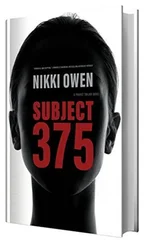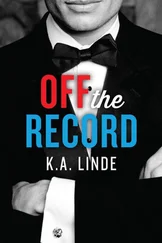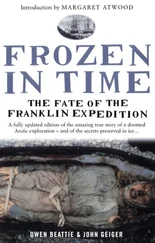When Rick gave us permission to talk to Real, we also knew of interest from other big Italian clubs, who were hoping to sign me on a Bosman, without a fee. But I was always adamant that I didn’t want to leave Liverpool with nothing from my move – even though I hadn’t actually cost them anything in the transfer market. I was a home-grown lad; Liverpool had always been really good to me, and we’d enjoyed a strong relationship.
When I look at it now, if I’d had two or three years left on my contract, I don’t suppose Real Madrid would have come in for me with £25 million to put on the table. The benefit, for them, of me having only a year left on my contract, was that my price was bound to be reduced and would therefore be more appealing.
The fact that Liverpool had a Champions League qualifier against AK Graz while the drama unfolded did complicate things. That game on 10 August came at an awkward time. It may have left a sour taste with some Liverpool fans to see me sitting on the bench for such an important match – yet the reality is that we had come to an amicable arrangement, which protected all sides.
Had I stepped foot on the field that night in Austria, I would have been ineligible to play for Real Madrid in Europe. Obviously, they wouldn’t have wanted a striker who was cup-tied, so the deal might have fallen apart. Equally, Liverpool needed to protect the transfer fee of 12 million euros (£8 million). So there was no choice but to watch my team-mates from the bench. I really didn’t enjoy not being able to help my mates.
Strange though it sounds, I didn’t talk to my family much when the initial interest became apparent. I kept them informed as best I could, but they didn’t know the full extent of it until the deal was quite close to being sealed. I think it hit my mum and dad quite hard. Louise was less affected. She’s more easy-going. My parents, though, were a bit anxious, to say the least. I think my dad wanted me to stay at Liverpool for at least another couple of years.
Maybe that would have been a good solution. But if I’d signed an extension for, say, two seasons there might have been a chance that Real would not be interested in me in 2006. Life moves on so quickly. There was one opportunity staring me in the face, and it was the right time and the right place. It took my mum and dad a good couple of weeks to get their heads round it. It was an adventure for us all. A new beginning.
1 The Goalscorers – Dad and Me
All through my childhood I was certain I was heading for a career in football. My father Terry, an ex-professional himself, was with me every step of the way; we worked as a two-man team to turn promise into reality. As a boy, I always felt I was playing for my dad more than anyone else, to make him proud.
I’ve lived in North Wales all my life, but I’m English by birth and by blood, though there is a Scottish branch to my dad’s family tree. There was never a possibility that I would end up playing for the country I’m happy to call home. I love the area around Hawarden where I grew up – it’s near Mold in Flintshire, only a few miles from the border with England – but it’s a fact that my birth took place in England, in the Countess of Chester Hospital.
I entered the world at 10.20 p.m. on the night of 14 December 1979 weighing 71b 15½oz. My mum Janette worked in the family clothes shop until 7 p.m. on the night of my birth and didn’t arrive at the hospital until 8 p.m. It was all over 140 minutes later. For three of her five pregnancies the two options for maternity hospitals were Chester and Wrexham, each of which was about 10 minutes away from the family home. But Chester was more convenient, and it had the added advantage of being in the country where both my parents were born. My other two siblings were born in Liverpool and Bradford, so all the Owen children are English, though our roots have been put down outside the land I represent on the football pitch.
My addiction to football developed in this large, happy and hard-working family environment I shared with my brothers Terry and Andrew and sisters Karen and Lesley. When people learn that my dad played professional football for 14 years, from 1966 to 1980, with Everton, Bradford City, Chester, Cambridge United, Rochdale and Port Vale, they tend to assume I took over the family business after watching endless tapes of his career, or listening to his stories about football in the old days. Not so. My dad never made a point of telling us that he was a former professional. I can tell you what teams he played for, but I can’t tell you in what order, or how many goals he scored for each club. He’s not one to bombard anyone with the minute details of his career. Nor would he insist on telling us in great detail how to play the game. There were a few old photos lying around the house, but you had to dig deep to find them. There was nothing on the walls or on prominent display elsewhere. I know what sort of person he is – quiet and quite shy – but I don’t really know what kind of footballer he was. If I hadn’t found out from my older brothers, I might never have discovered at all that he had played the game for a living. It’s possible that he wouldn’t even have mentioned it. He never felt the need.
I always wanted to be a footballer so I always had an appetite for knowledge, but I never pressed Dad with technical questions. He was always on hand to guide me with subtle advice, but playing football came naturally to me. In recent years, however, I’ve pressed him a bit harder on the details of his life on the circuit. I know, for instance, that he scored for Chester against Aston Villa in the first leg of a League Cup semi-final. He calls it a ‘scrappy goal’. I’ve also discovered that he had his happiest times at Chester, which is why he settled a few miles from the club when his playing days were over.
I think a lot about what it must have been like for him playing in such a different era. He’ll admit that he was something of a journeyman pro, touring the old Third and Fourth Divisions, and I can certainly imagine how hard that must have been. When he stopped playing he was forced to go straight out to work to support the five young children in our family. I have all my dad’s traits, so during my school years I was no more inclined than he was to discuss footballing careers in front of my friends. If they found out about my family’s footballing history, it was through the local newspapers, which commonly referred to me as ‘Michael Owen, son of former Chester striker, Terry’.
Beyond Dad, there’s no history of playing football in the family. His father, Les Owen, who was in the navy, died in 1983 when I was three. I have only one memory of him, standing by the back door of the utility room in our family home smoking his cigar. I gather that Les loved his boxing. Later, when I had two fights in the ring, my dad told me that Granddad would have been so proud to see me box. That brought a tear to my eye, because I’ve never really had a granddad around. My mum’s father, Roland Atkins, though he was always known as Tommy, died when she was 12. He was a sergeant in the army during the Second World War and fought in Germany; during peacetime he ran the clothes business my mum eventually took on.
Tommy’s wife, my mum’s mum and my nan, Isabel Atkins, came to live with us in an extension to the family home when she was 68. She was an avid fan of mine. Like my dad, she had this urge to be at all my games. She would give me a bar of Dairy Milk before the match to provide me with energy. You wouldn’t do that now of course, but it seemed a great idea at the time. Also, if I scored she would give me 10p a goal. She would stand there on freezing cold days, even when she was getting too old to do things like that. She died in 1994, just before I started playing for England U-15s, so my dad’s mum, Rose Owen, is my only living grandparent. She was the one who sent over a pile of sweets every Friday when Dad came home from work in Liverpool. Pocket money from her was a pound a week. She’s gone downhill in recent years and is now suffering from Alzheimer’s disease.
Читать дальше











